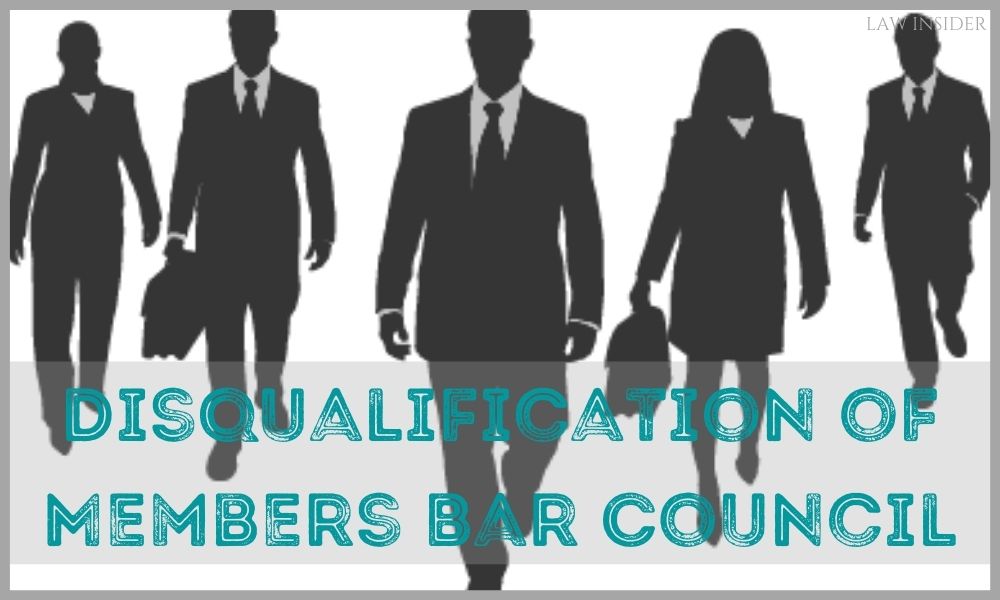By- Surbhi Jain
Introduction
The Bar Council of India is a statutory body that regulates and represents the Indian bar. It was created by Parliament under the Advocates Act, 1961. It prescribes standards of professional conduct, etiquettes and exercises disciplinary jurisdiction over the bar.
It also sets standards for legal education and grants recognition to Universities whose degree in law will serve as a qualification for students to enrol themselves as Advocates upon graduation.
Section 4 of the Bar Council of India provides:
- There shall be a Bar Council for the territories to which this Act extends to be known as the Bar Council of India which shall consist of the following members, namely:
- the Attorney- General of India, ex officio;
- the Solicitor- General of India, ex officio;
- one member elected by each State Bar Council from amongst its members.
Section 4 (1A) of the Act makes it clear that no person shall be eligible for being elected as a member of the Bar Council of India unless he possesses the qualifications specified in the proviso to sub- section (2) of section 3.
Provided that such person shall continue to carry on the duties of his office until the Chairman or the Vice- Chairman, as the case may be, of the Council, elected after the commencement of the Advocates (Amendment) Act, 1977 (38 of 1977), assumes charge of the office.
Section 4(3) of the Act provides that the term of office of a member of the Bar Council of India elected by the State Bar Council shall-
- in the case of a member of a State Bar Council who holds office ex officio, be two years from the date of his election 2 [or till he ceases to be a member of the State Bar Council, whichever is earlier]; and
- in any other case, be for the period for which he holds office as a member of the State Bar Council:
- Provided that every such member shall continue to hold office as a member of the Bar Council of India until his successor is elected.
Section 10-A of the Act provides that The Bar council of India shall meet at New Delhi or at such other place as it may, for reasons to be recorded in writing, determine. A State Bar Council shall meet at its headquarters or at such other place as it may, for reasons to be recorded in writing, determine .The committees other than disciplinary committees constituted by the Bar Councils shall meet at the headquarters of the respective Bar councils.
Every Bar Council and every committee thereof except the disciplinary committees shall observe such rules of procedure in regard to the transaction of business at their meetings as may be prescribed.
The disciplinary committees constituted under section 9 shall meet at such times and places and shall observe such rules of procedure in regard to the transaction of business at their meetings as may be prescribed.
Section 14 of the Act provides that no election of a member to a Bar Council shall be called in question on the ground merely that due notice thereof has not been given to any person entitled to vote thereat , if notice of the date has, not less than thirty days before that date, been published in the Official Gazette.
Disqualification of Members Bar Council
Section 10B of the Act gives that a chosen individual from a Bar Council will be esteemed to have cleared his office on the off chance that he is announced by the Bar Council of which:
- he is a part to have been missing without adequate reason from three back to back gatherings of such Council, or
- if his name is, for any reason expelled from the move of promoters or on the off chance that
- he is, in any case, precluded under any standard made by the Bar Council of India.
These conditions as summarized in the above mentioned three points were upheld in;
Bar Council of Gujarat vs. Vinod Harjivandas Dixit[1] the respondent argued that such a disqualification could be provided only by the bar council of India by framing some rules regarding the provisions of section 10 B of the advocates act, 1961, which provided that an elected member of a bar council shall be deemed to have vacated his office if he is ‘otherwise disqualified’ under any rule made by the Bar Council of India.
However, the Rule of Law upholds the idea that these regulations so framed cannot be framed arbitrarily or to the sweet will.
Decision of the Supreme Court in Council of Homeopathic System of Medicine, Punjab v. Suchintan[2] was cited on the aspect of interpretation. In paragraph 39 of its decision, it was held that Regulations cannot be construed causing violence to the language and that Regulations are plain enough and are susceptible only to literary interpretation and that they should be construed without introducing any element of ambiguity or absurdity.
The idea behind this section is to ensure that people holding office under the Bar Council do not indulge into any activity which prevents them from delivering their duties and obligations with maximum required efficiency
Conclusion
The Bar Council of India has a ton of capacities vested inside itself, whereby practicing those capacities it can rebuild and reframe the whole legal profession in the nation. Indeed, it can be conceived even more frequently than it has scarcely helped to improve Indian law on current occasions.
In India today the Bar Council must examine certain provisions in the legislative field in order to protect the law against degradation and to maintain similar actions.
Reference:

